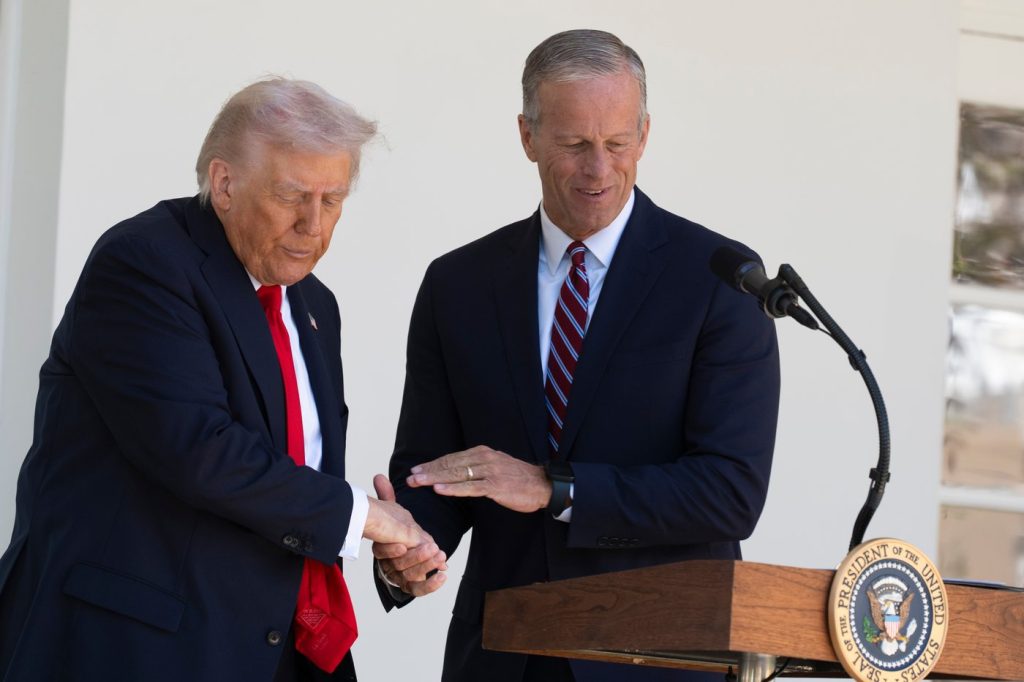In the midst of a prolonged government shutdown, President Donald Trump has renewed his calls for the Senate to eliminate the legislative filibuster, a parliamentary procedure that requires 60 votes to advance most legislation. This demand indicates Trump's growing frustration with partisan gridlock, particularly as Senate Democrats resist a Republican funding bill aimed at resolving the shutdown.
The filibuster, which isn't outlined in the U.S. Constitution, serves as a mechanism to stymie legislation unless a supermajority of 60 senators agrees to move forward. Its origins date back to 1805, following a suggestion by then-Vice President Aaron Burr to simplify Senate rules. Over time, the filibuster has transitioned from requiring lengthy speeches to a more straightforward notification process, where senators can declare their intention to filibuster, allowing a vote to proceed only when a supermajority is achieved.
Trump's recent comments reflect his belief that abolishing the filibuster could provide Republicans with a straightforward path to end the ongoing shutdown, which has lasted for over a month. He urged GOP senators to "play their 'TRUMP CARD'" and utilize what he called the "Nuclear Option." However, many Senate Republicans have been hesitant to consider this move, as it could jeopardize their power when they are in the minority in the future. They argue that the filibuster promotes bipartisan compromise, a value that they believe should be preserved.
Despite Trump's calls for more aggressive tactics, the legislative filibuster remains intact for regular legislation. The notion of abolishing it has been raised previously but faced significant opposition, notably from Republican senators who fear the consequences of changing such an integral legislative tool. Senate Majority Leader John Thune has stood firmly in favor of maintaining the filibuster, emphasizing its importance for ensuring stability and protecting the nation's governance structure. Thune's position is echoed by many veteran senators, who regard the filibuster as a safeguard against sudden shifts in policy that can occur with changes in congressional control.
The situation surrounding the government shutdown is exacerbated by disagreements over funding priorities, with Republicans controlling only 53 Senate votes. To pass a stopgap funding bill, they require the cooperation of at least a few Democrats. The impasse has arisen in part because Democrats are pushing for an extension of health care subsidies under the Affordable Care Act, which Republicans deem too expensive to include in short-term funding legislation. This demand from Democrats adds to the leverage they have in the negotiation process, leading some frustrated Republicans to consider revisiting the filibuster issue.
Some Republicans, alongside Trump, have suggested that the filibuster could be re-evaluated during this critical juncture. Individuals such as Senator Bernie Moreno from Ohio have hinted at the need for a shift in the Senate's approach, suggesting that unity among Republican senators could lead to an opening of the government without requiring Democratic input. However, despite such sentiments, significant resistances remain within the Republican caucus against dismantling the filibuster altogether.
As the shutdown continues, it becomes increasingly apparent that the debate over the filibuster is tied directly to the desire for a resolution. While Trump’s calls for its elimination resonate with some members of the party, the broader consensus within the Senate still leans toward preserving the filibuster as a crucial element of legislative procedure. Republican senators continue to weigh their options carefully, recognizing the potential implications of any drastic changes to Senate rules.











